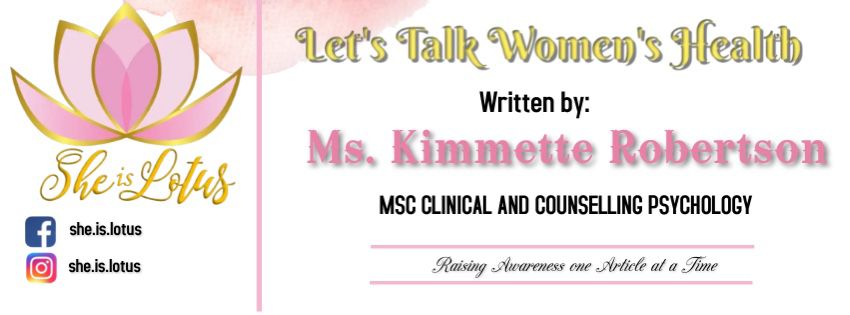Written by Ms. Kimmette Robertson
Whether you have been diagnosed with a menstrual disorder or suspect that you have one, there is no doubt that living with either PCOS, Endometriosis, Adenomyosis or uterine fibroids has significantly impacted the quality of your daily life. In this week’s article, SheIsLotus will highlight the impact of living with these conditions, noting specifically their effect on a woman’s physical, emotional and social well-being, in addition to the occupational consequences.
The Physical Impact
One of the most common symptoms reported by women who are affected by menstrual disorders is chronic pain. Despite this however, women often report many other physical symptoms with their condition, including gastrointestinal and circulatory problems, heavy bleeding, migraines, respiratory problems, weakened immune system, etc. Furthermore, several studies have found that women with menstrual disorders usually have higher co-morbidities. What this means is that other conditions can co-exist with menstrual disorders. Such co-morbidities include infertility, irritable bowel syndrome, chronic liver failure, chronic renal disease, cardiovascular disease, diabetes and hypertension. Menstrual disorders have also been known to increase the likelihood of developing certain cancers in women.
The Emotional Impact
Living with either of these conditions can bring about a wide range of intense emotions. These emotions can be further heightened when factoring in women who are affected for years without receiving an appropriate diagnosis, those with infertility and those who experience loss of control over physical changes due to hirsutism, hormonal acne, flares, enlarged abdomens etc. The mental health struggles of living with any of these conditions vary from woman to woman. Nonetheless, debilitating chronic pain and other symptoms are critical factors that impact the quality of life and mental health of women living with menstrual disorders. Research also indicates that a large number of women living with menstrual disorders often report experiencing depression and/or anxiety. Additionally, societal pressures to look “feminine”, act a particular way, and accomplish certain things within a given timeframe can greatly affect a woman’s self-esteem.
The Social Impact
Another major symptom noted with menstrual disorders involves social withdrawal. Numerous women have stated that their menstrual disorder drastically affected their personality, resulting in them no longer feeling like themselves. Consequently, they often report impaired social interactions, restricted participation in daily life (e.g., participating at events) and avoidance behaviours.
The Occupational Impact
Most importantly, menstrual disorders have been found to be associated with impaired occupational performance due to chronic pain, fatigue and other reported symptoms. Women usually report their inability to attend work for extended periods due to debilitating symptoms, in addition to reduced productivity while at work. The same can be said for girls who often miss out on school and socializing due to their condition(s).
There is no denying the tremendous impact that living with a menstrual disorder can have on a woman or girl. This emphasizes the need for empathy and understanding in relationships, at schools, in the workplace and in society as a whole .

